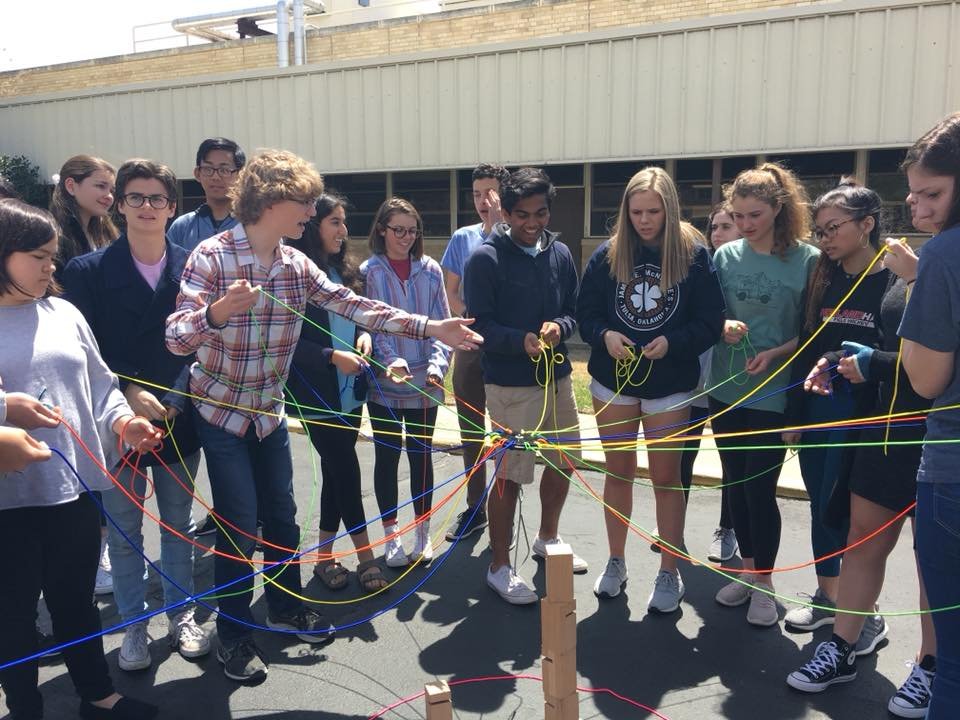Cohort 11: CultureBridge: Creating Empathy, Connecting Communities
Cohort 11’s project focused on increasing city- wide empathy for the immigrant experience. Drawing from the experience of several cohort members from immigrant families, their project CultureBridge: Creating Empathy, Connecting Communities sought to provide non- immigrants with a deepened understanding of the immigrant experience in the US and in Tulsa specifically. From accessing services to cultural barriers, CultureBridge worked to shed light on the many challenges facing immigrants and show why these citizens should not only be treated with compassion, but seen as a national asset.
The student’s project coincided with the launch of the New Tulsans Initiative, an initiative led by the City of Tulsa and the Mayor’s Office to build a more immigrant-friendly city. Cohort 11 students worked closely with the City to support this initiative, including by participating actively in the public visioning and strategic planning process. Students participated in the New Tulsans Initiative Summit, a roundtable discussion with Mayor Bynum, and several thematic task forces organized by the City, providing a valuable youth perspective. The head of the New Tulsans Initiative and Assistant to the Mayor for Community Development Christina da Silva (Starzi-Mendoza) worked closely with the students, and attended several cohort meetings.
Christina reflected on the unique collaboration: “We were in the first year of implementation [of the New Tulsans Initiative], so everything was still very new. We were still in the process of imagining what it was and what it could be... I was excited that we had youth interest... They had a creative perspective on how to help Tulsa be a more welcoming city.”
“I loved the questions they brought up... Sometimes it was a question I didn’t have the answer to, so it helped me to understand where we needed more research. It was refreshing to learn from them and see things from their perspectives.”
“The New Tulsans Initiative was the first time we had youth helping us to develop policy. It was new for us to have youth at the same table as the Mayor talking about what they see for the future of their city. It showed everyone that we need to be including youth in this discussion.”
“After [the experience with YPI], the Mayor had a big push to build more youth leadership into the City’s efforts. The Resilient Tulsa plan had some elements of engaging youth. We also started some youth focus groups and revamped the youth commission.”
In addition to their ongoing visioning work with the New Tulsans Initiative, Cohort 11 concentrated their efforts in a partnership with the OU-Tulsa Simulation Center. After participating in one of the Center’s simulations about poverty, the students were inspired to create an interactive simulation allowing teens and other participants to learn experientially about systemic barriers and cultural benefits related to immigration. To design the simulation, the students conducted extensive research and interviews with local immigrants - including family members of Cohort 11 students - that captured data from their lived experience.
In year three, Cohort 11 piloted their simulation with peers from other YPI cohorts and then expanded to friends and family, making continual improvements with each iteration. The final version of the simulation was structured around individual immigrant stories that would allow participants to walk through decision-making exercises created to emulate the authentic and diverse experiences of immigrants. It included Character Cards that participants will choose as their guide through the experience, which included the detailed stories of real Immigrants.
In total, over 100 participants from the Tulsa community walked through CultureBridge, including representatives from the George Kaiser Family Foundation, Communities in Schools,
Growing Together Tulsa, Tulsa Changemakers, and the Tulsa Mayor’s Office. Upon Cohort 11’s graduation, the OU Simulation Center added the CultureBridge simulation to its catalog of offerings for OU-Tulsa students. As the cohort’s graduation coincided with the outbreak of the COVID-19 pandemic, the in-person simulation could not be immediately implemented at that time.
Christina da Silva was among the simulation participants in 2020. “The legwork that the students did to collect stories and make it relevant to Tulsa was really impressive,” she recalls. “I loved that they showed the struggles and challenges, but also the resilience and how these populations contribute. It’s a hard balance to strike, and they did a great job... My favorite part was that they were honest that these were stories of people who live in Tulsa. This was what the New Tulsans Initiative was all about.”
In a recent interview, Director of the Simulation Center Kristin Foulks (Rodriguez) noted that the themes and content in CultureBridge remains highly topical and relevant to OU- Tulsa students. She shared that the Center is considering revitalizing the simulation as an offering for the upcoming 2023-24 school year.




